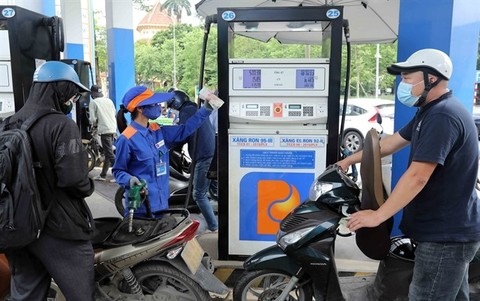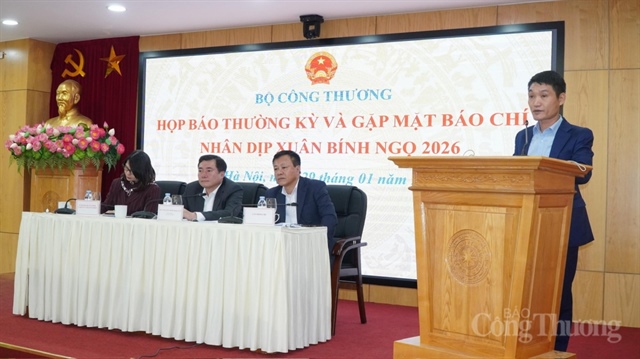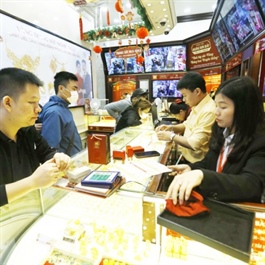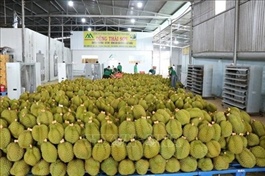Businesses allowed to decide their own petrol retail prices: draft decree
Businesses allowed to decide their own petrol retail prices: draft decree
To create a competitive environment among petroleum enterprises and implement price stabilisation under the Price Law, a draft of a new decree regarding oil and petroleum business will stipulate that enterprises decide their retail prices of petrol and oil.

A petrol station in Hà Nội. — VNA/VNS Photo |
Phan Văn Chinh, director of the Domestic Market Department, Ministry of Industry and Trade (MoIT), spoke at a meeting collecting opinions on this draft held in Hà Nội on May 14 by MoIT and the Việt Nam Chamber of Commerce and Industry (VCCI).
Chinh said that the oil and petroleum business decrees have been amended and supplemented many times, so they need to be merged into a new decree to make it easier for businesses, people and State management agencies to research and implement.
The new decree will replace the existing decrees relating to oil and petroleum business such as Decree No. 83/2014/NĐ-CP, Decree No 95/2021/NĐ-CP, and Decree No 80/2023/NĐ-CP.
The draft is built on the principle of ensuring harmony of benefits for consumers and petroleum businesses, and ensuring petroleum supply for domestic consumption. At the same time, it reduces the State's intervention in the oil and petroleum business activities of the enterprises.
Chinh emphasised four main contents in the draft including oil and petrol supply system, oil and petrol selling prices, the price stabilisation fund for those products, and the rights of businesses.
According to current regulations, the oil and petrol prices are managed by MoIT and the Ministry of Finance. The petrol and oil traders fix retail prices of petrol and oil in their distribution system based on the basic prices announced by the two ministries.
With the current price management mechanism, the oil and petrol traders are not proactive in deciding the retail prices of the products in their distribution system.
Trịnh Quang Khanh, permanent deputy chairman of the Việt Nam Petroleum Association (VINPA), believes that businesses should have rights to decide their retail prices.
"When the enterprises decide the retail prices, the domestic market will have competitive petrol and oil prices, so consumers will have many choices when buying the fuels," Khanh emphasised.
He also proposed that the ministry remove non-specific conditions in the petroleum business to create favourable conditions for the enterprises.
In this draft, MoIT also proposed that distributors could only buy goods from major wholesalers and not from other distributors to avoid illegal trading.
Hoàng Trung Dũng, deputy general director of Additivies and Petroleum Products JSC, said that regulation will limit the enterprises' business rights.
On the other hand, Dũng said, the main traders are permitted to import from many sources and also each other, but the distributors do not.
"This makes it difficult for the distributors, like in 2022, when there was a shortage of gasoline supply from major traders, we could not find alternative sources," he said.
Sharing the same opinion, Văn Tấn Phụng, chairman of Đồng Nai Petroleum Company, also said that not allowing distributors to buy from each other is not appropriate. This regulation does not encourage businesses to develop.
At the conference, economic expert Ngô Trí Long said that the petroleum price stabilisation fund is no longer necessary like in the previous period, so it is necessary to study the abolition of this fund.
The abolition of this fund also received the approval of many experts and businesses.
As the domestic petrol prices are also going parallel with the world market, the removal of the petrol price stabilisation fund should be considered, he said, adding that in recent times, the fund has proved not to work as efficiently as it should.




























